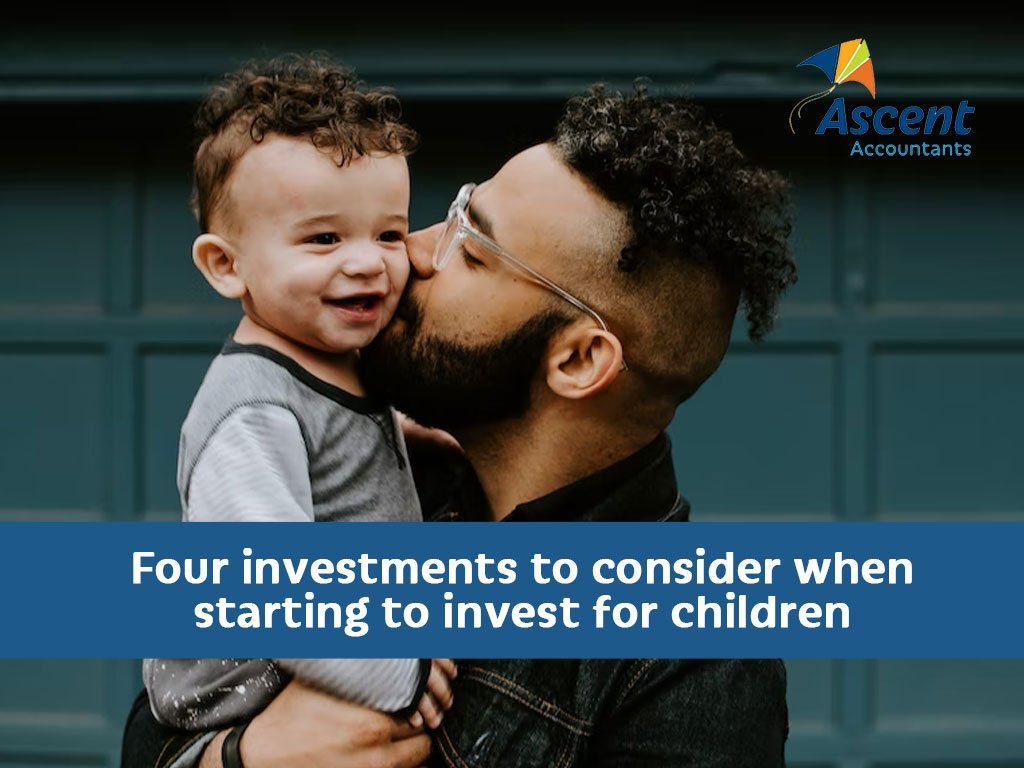Four investments to consider when starting to invest for children

Last month, we talked about how to invest on behalf of your children. If you’ve read through this, you already know that setting up investments for your children can give them a financial head start when they reach adulthood. As they get older, you can educate them on sensible spending habits and wise investment decisions so they can eventually continue investing on their own as an adult, if they want to.
A good thing to remember is that children have time on their side when it comes to compounding returns. The earlier you start investing for children, the higher the return on investment will be by the time they reach 18. Today, we’re following up with four practical and relatively straightforward investments you can consider for them.
Open a junior savings account
Opening a savings account for your child is one of the simplest ways to encourage age-appropriate investing and saving. Kids can save part of their pocket money and take ownership of growing a nice pocket of cash.
Like all investment strategies, nothing is easy. For junior savings accounts, children can face strict conditions around deposits and withdrawals to earn a decent rate of interest. With today's low rates, it's hard to find a junior savings account paying over 2.5%. Even so, an account like this is worth discussing with your bank. Note that these accounts can’t be set up online as they must be verified and approved in person by an adult.
Use investment bonds
An investment bond (also called an insurance bond) is kind of like a superfund in that it’s a separate structure with its own set of rules. Investment bonds have a flat tax rate of 30%. This means that all income and capital gains made within the bond are taxed at 30%. So, this is advantageous if both parents' marginal tax rates are above 30%.
Investment bonds are also a "tax paid" investment. This means all income and capital gains are taxed within the bond, which is great because when it comes to lodging your tax return, there’s nothing you need to declare. Why? It’s all been accounted for inside the bond, which provides a streamlined experience.
When you hold investment bonds for the long-term (we’re talking 10+ years), your investment becomes 100% CGT free. This is a massive benefit for those looking to invest over a long period of time.
We’ve packed investment bonds in a nutshell here, but they certainly have their complications and complexities. If you understand investment bonds — or have the time to understand them — this can be a great investment strategy. If not, it’s probably not the right one for your family.
Directly held shares.
Children can't buy shares, but parents can buy shares in trust for minors, which is a lot simpler than it sounds. Through a major broker like CommSec, you can open an online trading account where you act as a trustee for your child. When they turn 18, the shares can be transferred into an account that’s in their name. A benefit of doing it this way is that Capital Gains Tax shouldn't apply as the child has been the beneficial owner from the beginning.
The downside? Unless you invest regularly to build a diverse portfolio of shares, the investment of your child's small portfolio will hinge on the futures of one or two companies. You want to avoid putting all your eggs in one basket.
Exchange traded funds.
Did you know you can invest in ETFs as a trustee for your child? Using this strategy, your money is spread across a variety of underlying investments, making it a low-risk option. You can diversify further by investing in several ETFs, each with a focus on different markets. A benefit of this is that fees on ETFs are very low; often below 0.5%. This means more of the investment goes towards your child’s nest egg.
When it comes to investing, invest in professional support.
Like all big decisions — especially financial decisions for your children — there’s a lot to consider. So, here are four points we think you should mull over with support from an industry professional:
- How long do you plan to invest for?
- What do you want to invest in?
- What investment strategy will be most effective for your family?
- What will be the tax consequences (if any) of your chosen strategy?
- We’re ready to talk when you are.
We’re ready to talk when you are.
Contact us to learn more about investment options you can make on behalf of your child and the tax implications for each.
Need help with your accounting?








